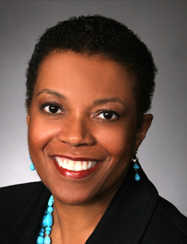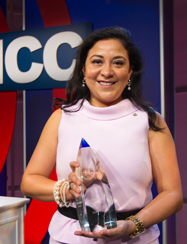BP leaders Redia Anderson and Kathleen Martinez share their strategies for engaging diverse employees, customers, and vendors.
An American Petroleum Institute study shows that the shale boom, along with an expected barrage of baby boomer retirements, will likely drive a hiring surge in the energy sector in the coming years. With today’s shortage of minorities in STEM, how do global energy companies plan on finding the diverse talent they’ll need for the future?
We recently had a chance to speak with two leaders from BP who are finding ways to meet this challenge—Chief Diversity and Inclusion Officer Americas Redia Anderson, and Senior Director of Strategic Relationships of BP America Kathleen Martinez. And they generously agreed to share their insights regarding the issues involved in engaging Hispanic professionals, customers, and vendors in today’s business climate.
What specifically is BP doing to bring more minorities into STEM roles?
Anderson: Minority recruitment, retention, and promotion matter to BP because our ability to be competitive and thrive globally depends on attracting, motivating, developing, and retaining the best talent the world offers.
Recruiting top diverse talent must begin internally. We train our recruiters so that they are confident in engaging with women and minority candidates, and really understand what makes BP an attractive employer. This includes ensuring that the language we use in job descriptions is female friendly and culturally relevant. Also, it’s important to remember that recruiting top talent doesn’t start at graduation; it begins much earlier. For example, events like BP’s Discovery Days are great ways to attract diverse engineers who are still in college.
How does BP work with MWBE (Minority and Women-owned Business Enterprise) suppliers? How specifically does BP engage Hispanic business enterprises?
Martinez: BP has a long history of working with MWBE suppliers, and our supplier diversity process is constantly evolving. This year, we are launching the new Supplier Diversity Advisory Council, comprising employees from procurement and operations, which is essential to strategically influencing the inclusion of MWBE suppliers in the procurement process. Our supplier diversity team works closely with MWBE suppliers to ensure that they have access to key decision makers and subject matter experts who can help them increase their knowledge of how our business operates.
BP is very proud of the partnerships we have with organizations like the Women’s Business Enterprise National Council (WBENC), National Minority Supplier Development Council, Inc. (NMSDC), and US Hispanic Chamber of Commerce. These partnerships provide ongoing opportunities for BP to engage with diverse suppliers, and we appreciate the vital role our partners play in supporting MWBE development.
How does BP support and encourage the professional development and advancement of multicultural employees? Where are you seeing the largest gains/challenges?
Anderson: BP is proud to offer a wide range of support to all employees at select BP office locations. This includes on-site day care, flexible work schedules, family leave of absence, on-site lactation centers, and working parent support networks.
Additionally, BP encourages and supports business resource groups, including our company-wide Women’s International Network (BPWIN), as well as our BP Asian, African American, and Latino networks. They sponsor a range of events and link local networks across our sites.
We also partner with women and minority organizations such as Catalyst, Center for Talent Innovation taskforce, Society of Women Engineers, Human Rights Campaign, Menttium, Executive Leadership Council, Society of Hispanic Engineers, National Society of Black Engineers, and The Center for Asian Pacific American Women’s Leadership Institute, to name a few.
What is different about creating an inclusive global workforce environment (vs. driving inclusion in a domestic environment?)
Anderson: Our markets and operations span the world. Our ability to be competitive and thrive globally depends on us attracting, motivating, developing, and retaining the best talent from the diversity the world offers.
BP believes that success comes from the energy of our people. We are committed to creating a workplace that is characterized by respect for each other—a workplace where we value diversity of people and thought. Through living our values of Safety, Respect, Excellence, Courage, and One Team, we create an inclusive global working environment where everyone can make a difference and give of their best
Why do you think BP has been able to establish such an impressive reputation as a top employer for women? Tell me about the 35 percent leadership goal for 2020.
Anderson: BP consciously seeks to recruit talented women—our ability to remain competitive depends on it.
The number of women in our group leadership has risen from virtually none in 1990 to nine percent in 2000 and eighteen percent in 2013. Our goal is to have women fill 35 percent of our leadership roles by the year 2020. To that end, we are providing resources and support for women in the industry, including diversity and inclusion training programs, on-site day care, flexible working schedules, family leave of absence (for maternity leave), an on-site lactation center, working mother support networks, and more.
Please tell us a little about your own professional background and your experience at BP.
Martinez: I hold a bachelor’s degree in business administration & marketing from the University of Texas, San Antonio. I am also a certified corporate citizenship professional with training from Boston College’s Carroll School of Management. My experience includes more than 18 years of practice in public relations, corporate social responsibility, marketing, philanthropy, and strategic relationship management.
My work at BP has focused on the development, management, and implementation of BP America’s national external affairs efforts. This includes overseeing the company’s US community investment policy and leading our national strategic relationships and initiatives platform.








